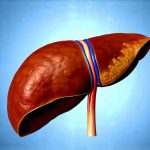The concept of “detoxification” has become incredibly popular in recent years, often marketed as a quick fix for various health concerns. Many detox diets promise to rid the body of toxins, improve energy levels, boost metabolism, and even promote weight loss. However, the human body is remarkably well-equipped to handle detoxification on its own through established organs like the liver, kidneys, lungs, and digestive system. When individuals embark on restrictive detox diets—often involving extreme limitations in food intake, juice cleanses, or laxative use—they can inadvertently disrupt these natural processes and potentially worsen existing digestive symptoms or even create new ones. It’s crucial to understand that the marketing hype surrounding detox diets often overshadows their potential downsides, especially for those already experiencing gastrointestinal distress.
The appeal of a detox diet stems from a cultural emphasis on purity and wellness, coupled with a desire for rapid results. The notion that accumulated “toxins” are responsible for fatigue, bloating, or other ailments is pervasive, despite lacking robust scientific backing. In reality, these symptoms are often more complex and related to lifestyle factors like stress, poor sleep, inadequate hydration, or underlying medical conditions. While adopting healthier habits – such as eating a balanced diet rich in whole foods, exercising regularly, and managing stress—is undeniably beneficial, relying on drastic detox measures is rarely the answer and can be counterproductive, particularly when it comes to digestive health. This article will explore how specific features of detox diets might exacerbate digestive symptoms and offer a more nuanced perspective on supporting natural detoxification processes.
The Impact of Restriction & Rapid Changes
Detox diets frequently involve significant restrictions in food intake or severe dietary changes. This sudden shift can disrupt the delicate balance within the gut microbiome, the complex ecosystem of bacteria residing in our digestive tract. A healthy microbiome is vital for optimal digestion, nutrient absorption, and immune function. – Sudden elimination of entire food groups (like carbohydrates or fats) – can starve beneficial bacteria, allowing less desirable species to flourish. – Juicing or liquid-only diets remove essential fiber, further impacting microbial diversity and potentially leading to constipation. – Extreme calorie restriction slows down gut motility—the rate at which food moves through the digestive system—contributing to bloating, discomfort, and irregular bowel movements. The rapid introduction of large amounts of fluids (often seen in juice cleanses) can also overwhelm the digestive system, causing diarrhea or cramping.
Beyond the microbiome, drastic dietary changes can directly impact digestive function. The gut produces enzymes necessary for breaking down food; when a diet is radically altered, the body may struggle to produce the appropriate amount of these enzymes, leading to maldigestion and associated symptoms like gas, bloating, and abdominal pain. Furthermore, individuals with pre-existing conditions such as Irritable Bowel Syndrome (IBS) or Inflammatory Bowel Disease (IBD) are particularly vulnerable. The unpredictable nature of detox diets can trigger flare-ups and exacerbate existing inflammation in the gut. For those already struggling with digestive issues, a restrictive diet is often the last thing needed. Understanding can vitamin deficiencies worsen reactions is also crucial when considering dietary changes.
The body’s natural detoxification processes – carried out by the liver and kidneys – require adequate nutrition to function effectively. Detox diets frequently compromise nutritional intake, potentially hindering these crucial processes rather than enhancing them. While they might temporarily reduce weight (often due to fluid loss), this comes at the expense of essential vitamins, minerals, and antioxidants needed for long-term health and proper detoxification.
Laxative & Diuretic Abuse
Many detox programs incorporate laxatives or diuretics as a means to “flush out toxins.” This practice is incredibly problematic for several reasons. – Laxatives can disrupt the natural bowel function, leading to dependence and potentially causing chronic constipation when discontinued. They also deplete electrolytes – crucial minerals needed for nerve and muscle function—which can result in dehydration, weakness, and even heart rhythm abnormalities. – Diuretics increase urine production, which, while seemingly effective at eliminating waste, can lead to severe dehydration and electrolyte imbalances similar to those caused by laxatives. – Relying on these substances doesn’t address the underlying causes of digestive issues; it merely masks symptoms and potentially creates new problems.
The gut is designed to eliminate waste naturally through regular bowel movements—facilitated by adequate fiber intake, hydration, and physical activity. Artificially inducing bowel movements with laxatives bypasses this natural process and can damage the intestinal lining over time. This damage can impair nutrient absorption and further compromise digestive health. Moreover, frequent use of diuretics can strain the kidneys, potentially leading to long-term kidney problems. It’s important to remember that detoxification isn’t about forcibly eliminating waste; it’s about supporting the body’s natural ability to do so. Why even healthy diets can cause discomfort is also an important consideration, as restrictive diets are often perceived as “healthy.”
The idea that flushing toxins through rapid bowel movements or increased urination is a sign of effective detox is a misconception. In reality, the liver and kidneys are responsible for processing and eliminating most toxins, and their function isn’t enhanced by aggressive interventions like laxative or diuretic abuse. These substances simply create an illusion of detoxification while potentially causing significant harm to the digestive system and overall health.
The Role of Fiber & Gut Healing
While some detox diets might include small amounts of fiber, they often fall short of the recommended daily intake – particularly when juice cleanses are involved. Fiber is essential for gut health because it: – Provides food for beneficial bacteria in the microbiome, promoting a diverse and balanced ecosystem. – Adds bulk to stool, facilitating regular bowel movements and preventing constipation. – Helps regulate blood sugar levels, reducing inflammation. – Supports the production of short-chain fatty acids (SCFAs), which have numerous health benefits including strengthening the gut barrier. A sudden increase in fiber intake without adequate hydration can also be problematic, leading to bloating and discomfort. However, a gradual increase in soluble fiber (found in foods like oats, apples, and beans) is generally well-tolerated and beneficial for digestive health.
For individuals with existing digestive issues, “gut healing” protocols – focusing on reducing inflammation and restoring the gut microbiome—are often more effective than restrictive detox diets. – Identifying food sensitivities and eliminating trigger foods can significantly reduce inflammation in the gut. – Incorporating probiotic-rich foods (like yogurt or kefir) or supplements can help repopulate the gut with beneficial bacteria. – Managing stress through techniques like meditation or yoga can also positively impact digestive health, as stress is known to disrupt gut function. – Prioritizing adequate hydration is crucial for optimal digestion and overall health. How enzyme deficiency can mimic IBS symptoms should also be considered when evaluating digestive distress.
A sustainable approach to digestive wellness focuses on nourishing the gut rather than punishing it. Instead of resorting to quick fixes like detox diets, individuals should prioritize a balanced diet rich in whole foods, fiber, and probiotics, combined with stress management techniques and adequate hydration. This holistic approach supports the body’s natural detoxification processes and promotes long-term digestive health. It is vital to remember that lasting change comes from consistent habits, not temporary restrictions. Can artificial flavors cause digestive issues are also worth considering when aiming for a balanced diet. How to build resilience around uncertain digestive symptoms can help manage the stress associated with dietary changes and potential flare ups. Why saying no to plans can help your symptoms heal is also a vital component of self-care when managing chronic digestive issues, as it allows for prioritization of rest and recovery. Finally, Can caffeine worsen gut inflammation is an important question to ask if you’re experiencing ongoing digestive problems.


















